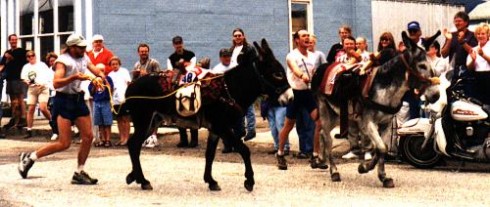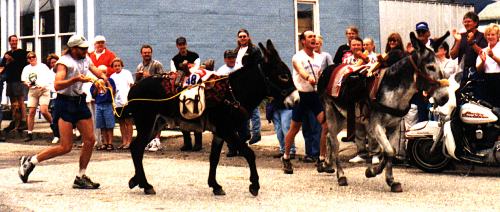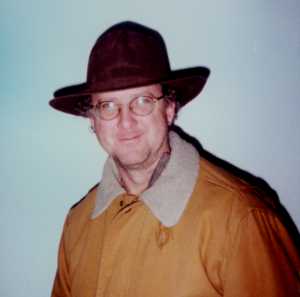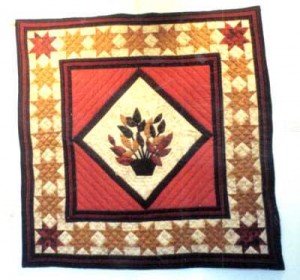Column by Hal Walter
Friendship – March 2004 – Colorado Central Magazine
ON A BRIGHT MID-WINTER DAY, Rob Pedretti put his hounds onto the track of a mountain lion, just as he had done hundreds of times before. The hounds rambled off through the snow and were quickly baying along a hot trail through the frozen crystals. Rob, a veteran lion hunter, outfitter, and endurance athlete clambered along after them. When he reached the end of the trail he found his dogs gathered around a tree which contained not a mountain lion, but a bear.
This was sort of a shock to Rob for two reasons. First, bears usually sleep in the winter. Secondly, he knew lion tracks — he and his dogs regularly “caught” (caught is the term houndsmen use to refer to lions they’ve treed) more than 20 lions a year. So he called his dogs off the bear and backtracked down the trail. Within minutes he found the place where the bear had crossed the lion’s tracks. He put the dogs back on the right track and soon they had the lion treed.
* * * * * * *
I FIRST MET ROB at a backcountry symposium put on by the Forest Service in Westcliffe in the mid-1990s. I had brought one of my burros for a packing demonstration, and he and then-partner Peggy Massie introduced themselves. They both were interested in pack-burro racing. But Rob’s primary athletic goal at the time was the Leadville Trail 100, a grueling race he went on to complete.
It wasn’t until spring of 1998 that I heard from Rob. With a little priming from Sue Conroe and Curtis Imrie, he was now ready to race a burro. We talked a bit and decided that his best bet at that point was to borrow a burro and run the short race in Westcliffe that June. His finish in that race turned out to be unspectacular, but it gave him the bug. And with the upcoming World Championship coming up, many people realized that all he needed was a better burro to be considered a contender. His athletic abilities were known far and wide in mountain running circles, and this combined with his affinity for working with animals, seemed like the perfect combination to shake up the pack-burro-racing scene.
Curtis hooked Rob up with some of his good donks, and we were off to the races. Since Rob lived in Cañon City, he would hitch a ride with me to Fairplay or Leadville, where we would meet with Curtis and Sue and go training on the race courses. The upcoming 50th anniversary of the World Championship was that summer. The entire burro-racing crowd was excited about the historical 50th race, and also the new level of competition that a runner like Rob would bring to the contest.

The 30-mile race itself proved to be a contest of self- determination. I took a lead fairly early in the race, but Rob and Curtis led a charge to catch up by the Mosquito Pass Summit. I broke away on the downhill but Rob caught up on the flatter section. Then, with the Outdoor Life Channel filming just about every step, we ran neck and neck the last few miles to town. Only the tip of my burro’s nose separated us at the finish line, sealing my first World Championship, and also a sort of brotherhood with Rob that I have rarely found with other guys of my generation. An old-time pack-burro racer once told me that when it comes down to a sprint to the finish line that you might as well just flip a coin. Sure enough, the very next year, Rob had his own burro and he paid me back right at the same finish line, claiming a world championship for himself.
* * * * * * *
ROB AND I had much more in common than just pack-burro racing. We both came from similar family backgrounds. We both liked to hunt, though he was much more involved through his outfitting business. We both were reaching middle age without a clue of what we wanted to be when we grew up. Neither of us were cut out for what most people consider real jobs — he had all but given up his first career as a nurse for his outfitting business, and I had turned from newspaper and magazine work to freelance writing and editing. It’s been said that Rob made friends from all areas of his life, regardless of how new the age or how red the neck; my friends also represent a broad spectrum.
But there was one main difference that I figured out early. While I find peace in my “corral-based” existence, Rob rarely stayed still. My life centers on my home, wife, animals, and office. But Rob was always on the go, off to Craig, Trinidad, New Mexico, Texas, Arizona, and Canada on hunting trips. He went back to the Midwest to visit family. Any down-time was quickly filled with caring activities such as coaching a Little League Baseball team or working odd shifts as a nurse at nursing homes in Cañon City and Salida. Rob rarely spent much time at home and I often wondered why.
On the way home from one of his many trips he called and asked me to meet him in Cotopaxi, as he had a gift he wanted to give me. When I arrived at the Cotopaxi Store parking lot he held out his hand, palm up. In it sat a pint-sized puppy. While Rob owned several grizzled mountain-lion hounds, he favored the rat terrier as a pet. He had obtained this one from an Amish family in Wisconsin. I named the pup Ted after Theodore Roosevelt, who also favored this breed.
* * * * * * *
WE STOPPED AT Il Vicino (now Amícas) on the way to a pack-burro race in Platoro in the spring of 1999. We ate a late lunch and also filled a jug with Wet Mountain India Pale Ale to put in the ice chest for later. We met up with some of the pack-burro tribe at a bar in Antonito where the race organizers, the Archuleta family, were hosting a dinner for racers.
Having eaten our way toward the race, it was nearly dark when we headed on to Platoro, which is several miles from pavement up a winding mountain road. When we arrived it seemed the entire village was asleep, and the early spring and high elevation made for icy camping. We looked around and found some corrals for the animals. Then we got into the pale ale.
Before long we were laughing hysterically at the absurd inability of two allegedly accomplished outdoorsmen to erect a tent. In our defense we were working with frozen hands. For some reason I went to the creek and noticed that the bankside willows were sheathed in ice from snowmelt splashing in the frigid air. For the first time in 20 years I remembered exactly why I had become involved with pack-burro racing, and it had nothing to do with the racing itself.
The next morning we made coffee on the tailgate of my truck, and shortly thereafter everyone went out way too fast. The race was 16 miles out and back on the road we had driven in on the previous evening. Despite the cold night temperatures it became quite warm for running in the last half of the race. As we came into the last miles, Rob and I had, with extreme effort, driven our burros well ahead of the rest of the field. But now he wanted to push even harder. My legs ached terribly and my mind was ready to snap. But Rob kept pushing the pace. Now that it was down to the two of us and our burros were inseparably hooked up, it seemed prudent to save something for a finish-line sprint. But Rob seemed determined to leave it all out there. Right there. And all the way in. Sometimes situations like this offer a glimpse into other people’s souls. I wondered what exactly I was looking at and what could possess Rob to push that hard. And I would wonder this same thing again and again as similar scenes played out on burro-racing courses over the next couple of years.
* * * * * * *
WE TRAINED AND TRAVELED to more races together, including a strange one, in Winston, New Mexico. There was a 6-hour training run with burros on Greenhorn Mountain that left our animals sour for the 2001 Fairplay race where we finished together miserably far behind winner Tom Sobal. We hunted pronghorn on Rob’s hunting lease near Trinidad where I slept out under a starry sky that I felt was within actual reach. We talked about life, and things we wanted to do.
Last spring, Rob made the ballzy mid-life decision to give up outfitting and enroll in chiropractic school in St. Louis. After his going-away party at Pizza Madness in Cañon City we embraced and he was on his way. He left a phone message last summer congratulating me on my third World Championship. I called back several times and left messages but never spoke to him. I heard rumors that he had dropped out of school. Then in early January I received an e-mail from him, explaining that he had been fighting anxiety for some time and that while he had done well in school — usually top five in his classes — he, in his own words, “just blew up into a ball of anxiety.” He said he would be heading home soon, and I waited to hear from him.
* * * * * * *
ON FEB. 3, 2004, Rob Pedretti’s battle with depression came to an end. It was a shock for most of his friends. Rob was always upbeat, always positive; many who knew him, including myself, never had a clue he had a history of depression. To me it was unfathomable that the physical and mental strength that I had seen and felt during those races was not enough to overcome this hidden monster.
The death of a friend in this manner arrives like the slap of an icy cold hand, waking you from your everyday world and forcing you to take stock of all things in your life. Moreover, it makes you savor those friends who remain, and to look toward them with a greater sense of caring. Perhaps this is the greatest lesson from my friend Rob. I thank him for this, and hope that at the end of this new trail he hasn’t found a bear, or a mountain lion, but instead a sense of peace.
The night writer Hal Walter learned of Rob Pedretti’s death, a troubled sleep came only through the hypnotic hooting of an owl echoing off the hillsides surrounding his home in the Wet Mountains.



